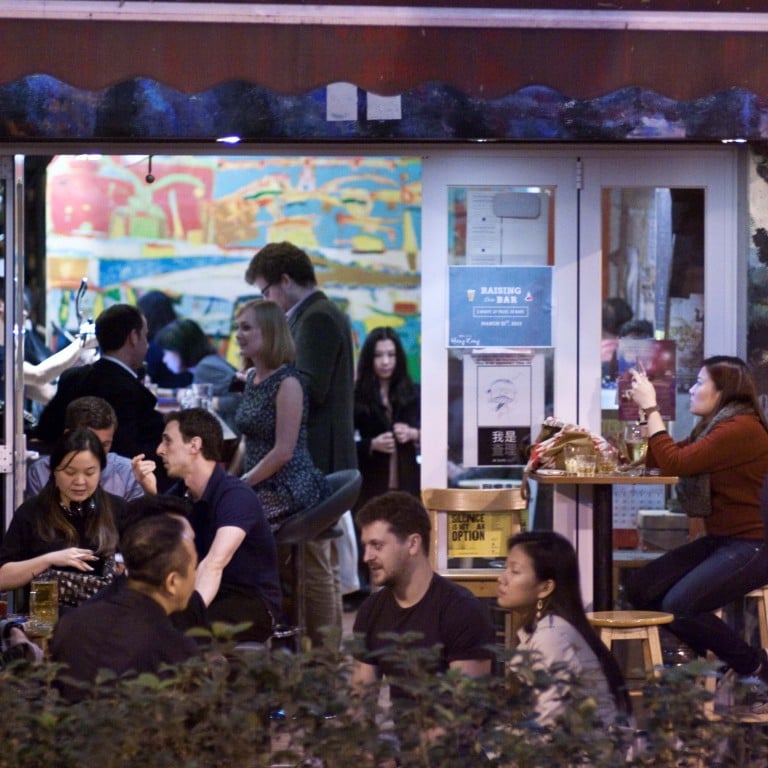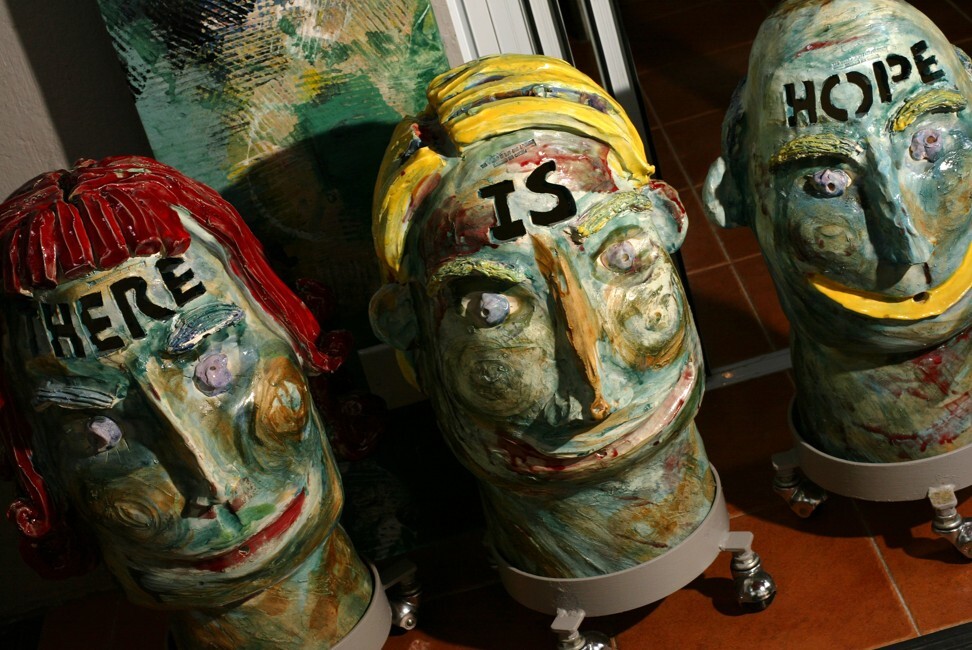
Club 71, go-to bar for artists, activists and creatives in Hong Kong, to close – killed off by the coronavirus pandemic
- Club 71, hit hard by a year of anti-government protests, and then by the Covid-19 pandemic, will close at the end of October
- The bar – and its predecessor Club 64 – were known for cheap drinks and a clientele that included ‘Long Hair’ and filmmakers Christopher Doyle and Herman Yau
Club 71 – the favourite bar of a generation of Hong Kong political activists, artists and media figures – will close at the end of October after failing to resolve a rent dispute with its landlord.
Co-owner Grace Ma Lai-wah said that, while the bar’s rent had been lowered to HK$45,000 a month from September 2019 because of the impact of mass anti-government protests sparked by an extradition bill, the landlord had wanted to start charging the original rent of HK$63,000 again.
She said there was no hope of reopening in a new location. “I have been losing money for so many years and I had been looking for someone to take over the business, but then came the anti-extradition protests and the coronavirus. I’m too tired … I’ve been working for the landlords for the past 30 years.”

Ma said the government should have “played fair” with its coronavirus restrictions. “We could have adopted the same measures as restaurants, for example, and remained open.
The Wanch, oldest live-music venue in Hong Kong, shuts in Wan Chai
For more than three decades Club 71 and its predecessor, Club 64, served as something of a salon where the city’s dissidents and left-leaning intellectual crowd could gather to discuss everything from politics to art over some of the most affordable drinks in the notoriously expensive district.
Michael Hutchence, the late frontman of rock band INXS who spent much of his childhood in Hong Kong, filmed part of his 1997 video series Rough Guide to Hong Kong in Club 64.
The following year, Ma and her silent partner moved the venue a few hundred metres up the hill to SoHo and renamed it Club 71, with the name inspired by the massive protests on July 1, 2003, against proposed national security legislation to comply with Article 23 of the Basic Law, Hong Kong’s mini-constitution under Chinese rule.
Club 71 is on Hollywood Road, near “where Chinese revolutionaries once plotted the overthrow of the Qing dynasty”, the bar states on its Facebook page. It maintained the same bohemian atmosphere as Club 64, and engaged the community by hosting art exhibitions, meetings by gay rights groups, among others, and jam sessions with local musicians.

Even though her venues were often included on lists of the city’s best bars, Ma remains modest about the accomplishments of Clubs 64 and 71.
“I wouldn’t say we were important to that many people. We were just a tiny bar catering to a small circle of different people from different walks of life. Whoever came to the bar – people like artists and creatives – will have fond memories. I won’t deny that the venues had a position in the history of Hong Kong, but I don’t think we were overly important to most people in Hong Kong.
“The bar was only important because of the people who came. My regulars all had their own character or personality and everyone – even people who may have been less educated than others – felt at ease there. For example, we would have a professor mixing with artists, musicians and so on. The bar was all about the characters and this is the kind of culture I hope can continue developing here in the years to come.”

While coronavirus restrictions are gradually being relaxed, bar and club owners citywide have been hit hard financially by a loss of revenue this year, which has come on top of the disruptions to business caused by the anti-government protests in 2019.
Most notably, The Wanch, the oldest live-music venue in Hong Kong, announced at the end of August it had vacated its premises in Wan Chai and would be suspending operations because of the loss of business caused by the shutdowns.

